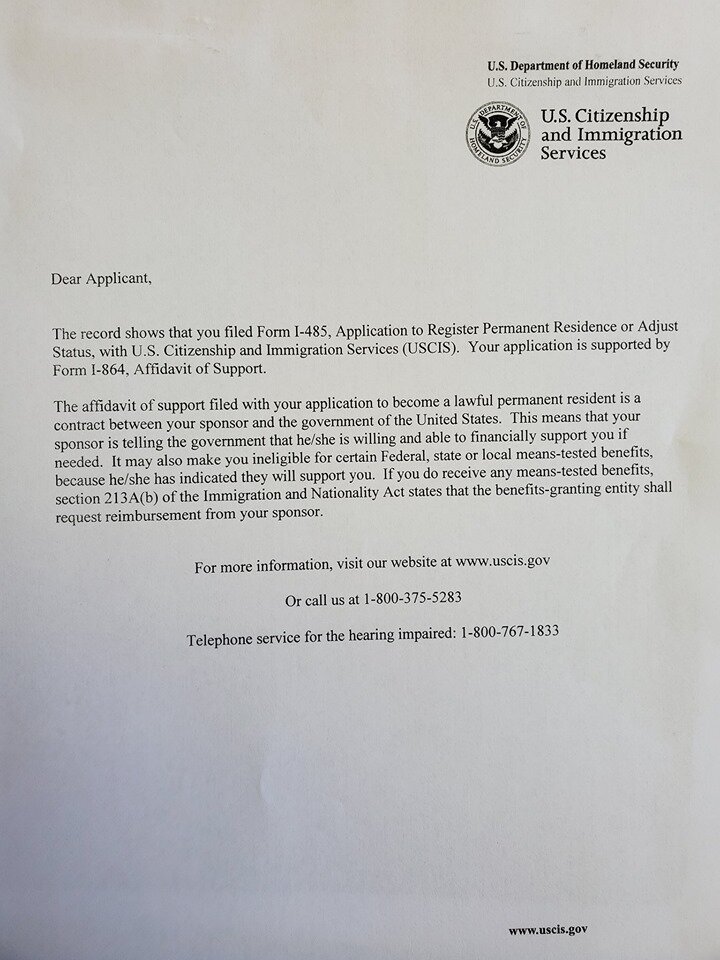상세 컨텐츠
본문
가족초청이민의 주신청자(Petitioner)의 재정능력이 부족하여 제3자가 소위 I-864 재정보증을 해 주었을 경우(서명/날인), 그 의무가 끝날때 까지 어떠한 이유로도 책임을 벗어날 수 없다는 것이 최근 미국연방항소법원의 판결로 확인 되었다.

Answer: U.S. Court of Appeals for 9th Circuit held that I-864 sponsor/ joint sponsor cannot avoid liability by claiming marriage fraud ...
In 2019, the Ninth Circuit Court of Appeals held that an I-864 sponsor (defendant) may not avoid liability by claiming marriage fraud. The decision follows the view that I-864 obligations end only after one of the five terminating events defined by Congress.
Dorsaneo v. Dorsaneo arose in the federal district court for the Northern District of California (No. 3:17-cv-00765-VC). Our lawyers represented the Plaintiff, who was a beneficiary of a Form I-864 signed by the Defendant. The central theme of the Defendant’s case was that he was duped into marriage. He claimed that the Plaintiff lied to him about her background and that he would not have married her if he had known the truth about her background.
In standard contract defenses, it can be a defense to liability if someone entered into the contract due to fraud on behalf of the other party to the contract. If someone offers to install a new work on your house, you might be able to back out of the contract if it turns out the person lied about their experience installing roofs, and in fact, they have never done so before. In Dorsaneo, the Defendant argued that he should not be bound by the terms of the I-864 if his wife didn’t turn out to be the type of person he thought she was.
Like the Defendant in Dorsaneo, most I-864 defendants try to raise the defense of fraud. This is no great surprise. After a marriage has fallen apart – to the extent that one former spouse is suing the other one for financial support – there are bad feelings on both sides. Defendants claim that they would never have married their former spouse if they had known who the person ‘really’ was. The same would probably be said by most unhappy couples who end up seeking a divorce.
But in Dorsaneo, the District Court held that these types of allegations are not a defense to liability under the Form I-864. By statute, Congress has clearly defined the five terminating events that end a sponsor’s liability. In short, the sponsor remains liable so long as the I-864 beneficiary remains in the United States until she has worked 40 quarters or becomes a citizen. The entire purpose of the Form I-864 is to make a sponsor responsible for the immigrant’s wellbeing during this sponsorship period. It would undermine that purpose of the sponsor could back out of the contract if, in hindsight, he regretted entering into marriage.
On appeal, the Ninth Circuit agreed with the District Court. In an unpublished decision (download here) the Ninth Circuit adopted the reasoning of the trial court.
[Defendant] pled and argues that his obligation should never have attached because [Plaintiff] made untruthful representations to him, and those induced him to marry her and sign the I-864 contract. However, nothing in the statutes, the regulations, or the I-864 contract so provides. On the contrary, as we have explained, the very purpose of the statutory scheme “is to prevent the admission to the United States of any alien who is likely at any time to become a public charge.” Erler, 824 F.3d at 1179 (internal quotation marks omitted); see also 8 U.S.C. §§ 1601(1)–(2), (5), 1182(a)(4)(A); H.R. Rep. No. 104-651, at 6, 1327 (1996), as reprinted in 1996 U.S.C.C.A.N. 2183, 2187, 2384. We went on to explain “that purpose is best served by interpreting the affidavit in a way that makes prospective sponsors more cautious about sponsoring immigrants.” Erler, 824 F.3d at 1179. [Defendant] was not sufficiently cautious.
The Court correctly focuses on why the Form I-864 exists. Congress created the I-864 to ensure that recent immigrants would not become dependant on American taxpayers for financial support. To serve that end, Congress imposed a very tough obligation on sponsors. No one is ever required to become a sponsor. But if someone chooses to accept that responsibility, the obligation remains until it concludes under the terms defined by Congress.
The practical result of Dorsaneo will be to limit the issues that a court may consider in I-864 enforcement cases. Dorsaneo stands for the proposition the defendants are not allowed to avoid liability based on any of the defenses typically available in contract litigation, such as unconscionability (the idea that a contract is too unfair to be enforceable). The only defense that a sponsor can raise, under Dorsaneo, is that the contractual obligations have terminated because one of the terminating events has occurred.
Dorsaneo reinforces the view the legal and factual issues in I-864 cases are limited. Typically a Form I-864 sponsor will have to concede that he signed the Form I-864, since denying that would be an act of perjury. After that, the focus of the case is assessing the Plaintiff’s income, and ascertaining how much support has been provided by the sponsor. After that, it is a matter of arithmetic to determine the judgment that should be entered against a sponsor.
It was already the case that virtually all I-864 enforcement cases resolved at the summary judgment stage, or earlier through negotiation. Dorsaneo puts Plaintiffs in an even stronger position to get their claims resolved quickly. Certainly that is the result that Congress intended: that sponsored immigrants have a practical way to enforce their rights rather than spend years trying to do so, as we had to do in Dorsaneo.
Question or comment?
Please feel free to contact the Attorney Jungsup Kim (Jay)
at +82-2-6013-2257 (Office Direct) / +1(551) 587-8803 (USA)
email: jsk@flkim.com
더 궁금한 사항은?
김정섭 미국변호사 (이민법인 프레데릭리앤킴)
직통: 02-6013-2257
전자우편: jsk@flkim.com
'이민법리걸메모' 카테고리의 다른 글
| [김정섭 미국이민변호사02-6013-2257] 이민법에서 체류기간은 어떻게 계산하는가? [정답과 해설] (0) | 2022.09.07 |
|---|---|
| [김정섭 미국이민변호사02-6013-2257] How to count a day for US Immigration law purposes? (0) | 2022.09.06 |
| [김정섭 미국이민변호사] NIW로 당신의 가치를 입증하세요. (0) | 2022.09.02 |
| [김정섭 미국이민변호사] [실제사례] 영주권이 승인되었으나, 아들은 미국유학중이다 영주권비자인터뷰를 위해 한국에 들어와야 하나? 1편. (0) | 2022.08.23 |
| [김정섭미국변호사02-6013-2257] Issue: 1년 이상 한국에 장기체류한 영주권자 재입국: SB-1 비자가 최선의 답일까? (0) | 2022.08.06 |







댓글 영역